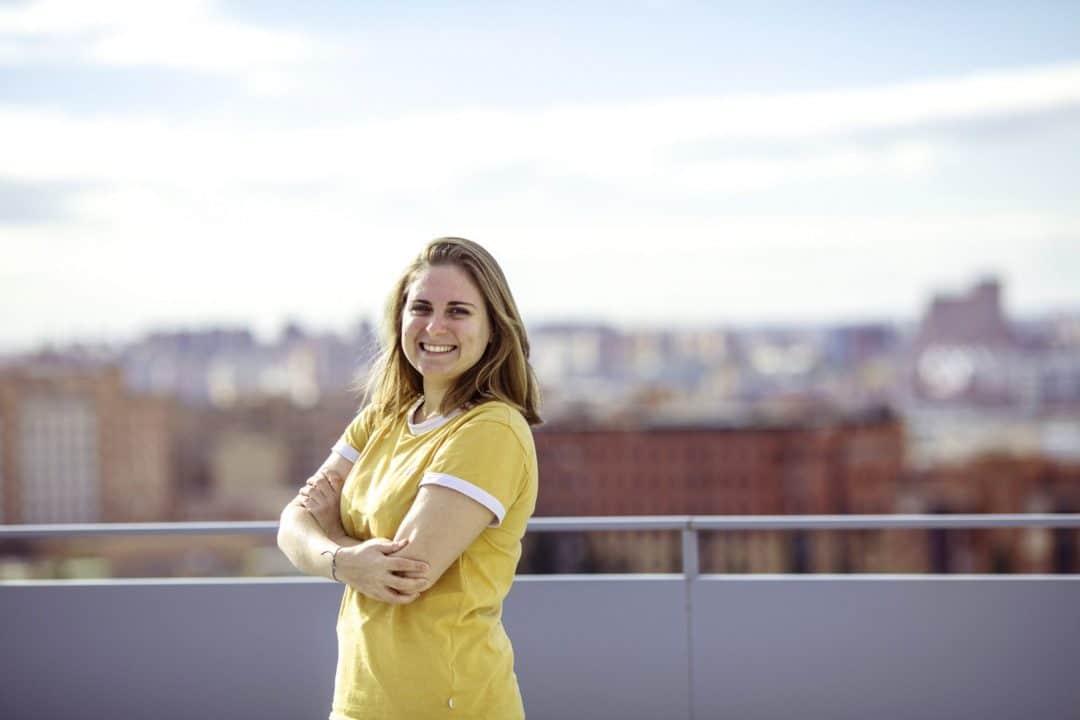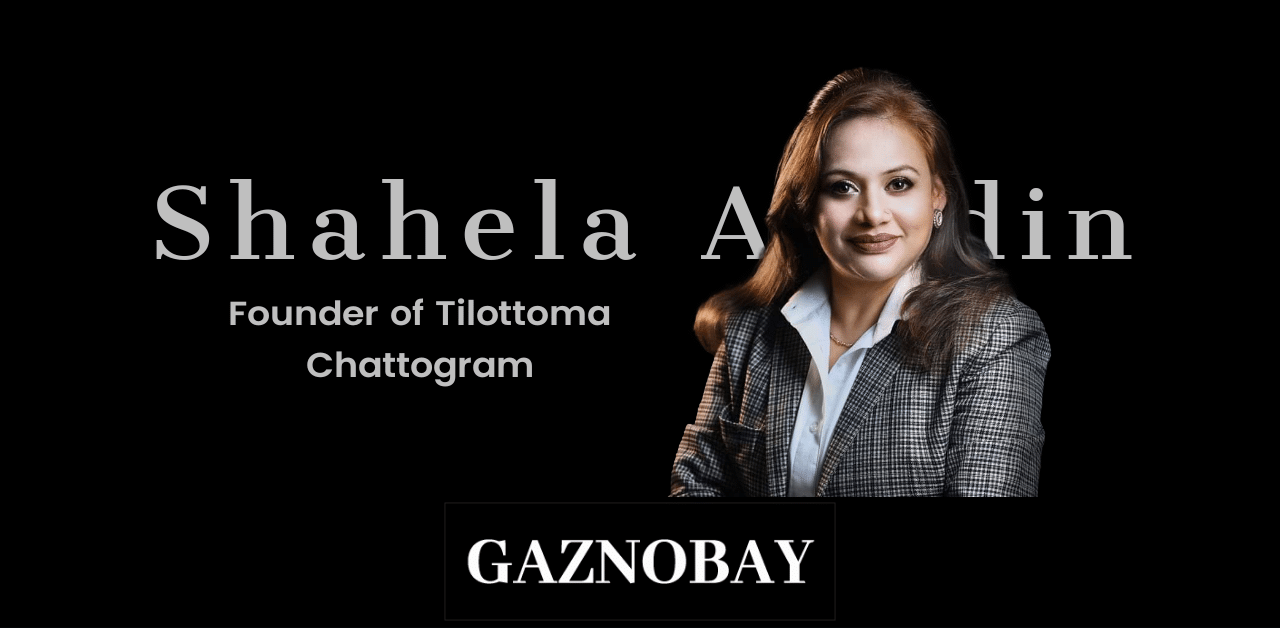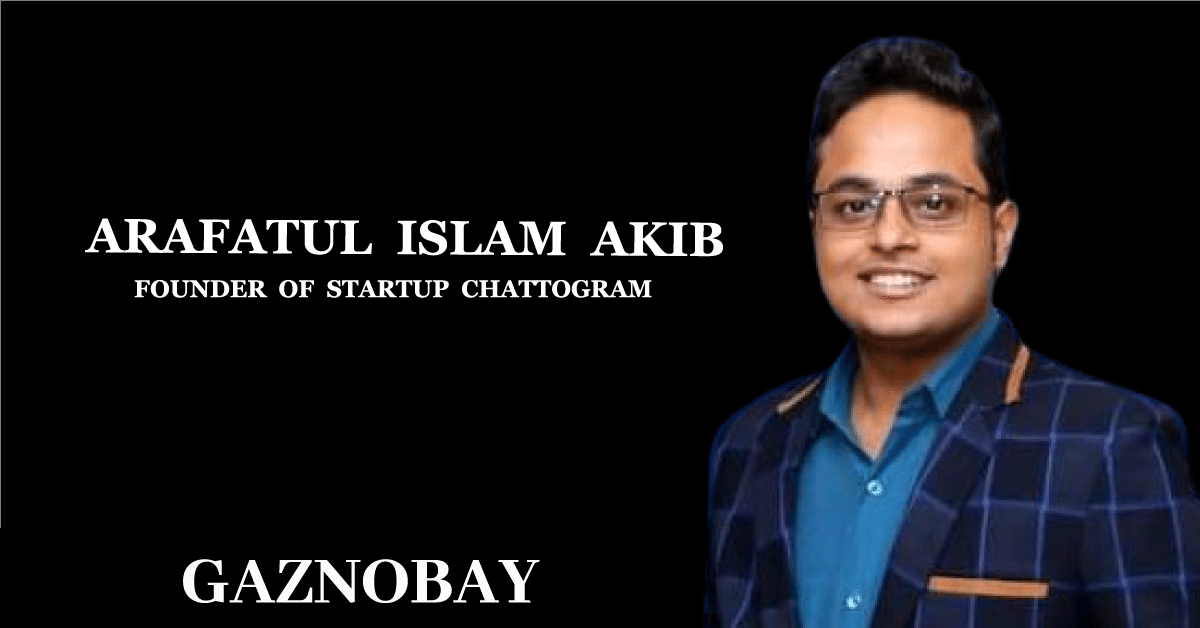Recently, I have met with Julie Murat, Co-founder and COO of Bridge for Billions. She has shared with us about her background, Bridge for Billions, professional experience, and what are they offering to early-stage founders. Let’s start our conversations.
1: Hi Julie, Hope you are doing great. Would you please tell us about your background, childhood, education, career, and where you currently live and what you are doing today?
Hello, this is Julie, thank you so much for giving me this opportunity, I am originally French. I was born in Paris in 1992. I come from a pretty privileged background, for example I always had access to education and opportunities because my family was pretty well off, so I was lucky embark in long studies after high school, I went to study at a business school. As a kid, I was quite nerdy. I was reading a lot, so my first internship was actually at a publishing house in Paris. They gave me a book at the time, and this book was actually from Muhammad Yunus, you probably know him being from Bangladesh. And that’s really changed my view of the world; it was 2007 and he had just published ” A world without poverty,” By reading this book. I realized that people can leverage business for good. We all know society has a lot of problems, and the politicians have shown that- they’re not able to answer to all of those needs, and the civil society neither, so it got me thinking how we could leverage business to do better. So that’s a bit about my upbringing, and that’s what led me to do what I do today. Today I live in Madrid in Spain. It’s been 5 years. I co-founded and lead a social enterprise called Bridge for Billions.
2: What is Bridge for Billions? Tell us a little bit about Bridge for Billions.
Bridge for billions we started in 2015, and we are also a social enterprise with the big mission of democratizing access to quality entrepreneurial support. The reality is that a lot of people have big dreams, they have big purpose and they want to set up their own company-to create something that makes the world better. But they don’t necessarily have the opportunity to do for some many reasons. Some Mau feel trapped in their day jobs because they need to make a living. Others didn’t necessarily have access to the right connection, right education and to them it feels like it’s very exclusive to have access to support as a early-stage entrepreneur. So at Bridge we were born to break that paradigm and make support accessible to anyone anywhere. The goal is to provide them with mentorship, a structured supports and help them craft a business plan and launch a company being confident that this would be viable. By doing that we increase self-management and also hopefully create a lot of employment opportunities for others. In a nutshell we are running online programs for entrepreneurs globally, in English, French and Spanish and each program includes 3 months of access to a proven pedagogy the support of a personal mentor that gives you one to one sessions, and then the access to a global community of entrepreneurs and mentors that support you in this journey.
3: When and how did you get started with Bridge for Billions?
During and after my studies, I had a few professional experiences. I tried working for big a big multinational company and I didn’t really see the impact that I had there; I was feeling kind of like a cog in a machine. So I knew that for me, a smaller structure was a better fit, and I also tried to work in the NGO world and I really loved it; I love the people I met there and the values they had, but it was also a big organization, and I didn’t really know how I could make a big impact there. So I started Bridge for Billions with 3 other people back in 2015, two Spanish men and one Taiwanese woman, we’ve grown a lot since then, today we’re a team of 34 people, Most of us based here in Madrid. Our impact has grown too see since we’ve supported 1700 entrepreneurs with the support of 1100 mentors in those 5 years. A lot has changed.
4: What motivated you to get into early-stage startup support?
Well, the early stage is really the ones where entrepreneurs have it the toughest. There are many support programs and investors but they usually only cater to entrepreneurs who already have what they call traction: a product, some clients, some revenue. So, we wanted to get into early-stage entrepreneurship support because if we don’t support at the early stages, then we make the whole playing field more difficult to access, and then we don’t have as much innovation that we so much need in the 21st century to tackle all the challenges that we face.
5: How do you approach investing in early-stage startups? What is your investment philosophy?
We don’t directly invest in early-stage startups. We are not an investment firm; we are an incubation program, so we support to the entrepreneurs’ structure methodology with mentorship, with a community of peers; it’s a 3 months incubation program, which is very intense, crafting a business model, they work on the financial model, financial projection, value proposition, etc, etc. A few months back we did launch a global investors network so that we connect our Alumni to them for funding opportunities.
6: Could you please give us an overview of Bridge for Billions, like an overview of operations, how your operations work, supports you provide, your size, etc.? How does Bridge for Billions help startups to improve their chance of success? What are you offering to startup founders?
We’re a very international team. Today I think out of 34 people; we have probably 12 nationalities. Most of us work from Madrid, Spain, but we also have a few people working from Latin America. We have 4 sub-teams within the team, so some people work on creating new programs and making partnerships with corporates and some other eco-system players, others work on running those programs with entrepreneurs and mentors and providing the best possible experience, then we have a marketing team telling all the amazing stories of our Alumni, and then we have the tech team that is coding the platform on which the programs happen because we have a digital component to make it accessible to anyone.
We work on improving startup’s chances of success by telling them that what works is disciplined entrepreneurship. So when you start a business, you have 1000 ideas you have those creative juices flowing, but you really need to be able to take it to step by step and focus on one topic after the other: who are your customers, how big is your market, how do you differentiate from similar solutions, how do you partner with others how do you find a pricing model or business model, how do you grow, how do you create a team, what kind of culture you want for the team, there are the lots of things to tackle and it can feel daunting, so we’ve broken them down into 8 business module. Each founder can craft a plan for their early-stage company and be confident that they have all the knowledge and tools they need to get started.
We offer discipline, accountability and peer support. As an early-stage founders, you could go in every possible direction, but you really need to structure to have discipline and to take one topic at a time, right? So think first who would be your clients, competitors, what else existing in the market, how can help business model, how do you define price point, what could be acquisition, marketing strategy, what will be a financial projection for the next year growth plan, we have them with interactive modules through online that they are learning by doing so they are not watching videos, are reading PDF format, they are really working through the different stages of building a business, they also have mentors for the support, meet with them every week, help them hypothesis challenge, thinking to refine their ideas, this is what we offer after the program is over they will get the business plan and investment, enter market strategy, what will need for the next step, and others entrepreneurs support
7: What kind of culture exists in your organization, how did you establish it?
Well, that’s an excellent question. I’m really fond of company culture, so we’ve taken a lot of bits and pieces of different frameworks, generally very horizontal, very flat, so everyone has a leadership role in the company and can read the take decisions that relate to their area and impacts the whole of the company. We work with a framework that is called ‘Teal organizations,’ I recommend you research a little bit about it, it’s fascinating it’s about new self-management organizational models where people can really be autonomous and responsible and accountable for the decisions they take and also have that creative freedom you know to be their own leader. This is an inspiration for us the theory behind teal comes from a French author called Frédérique Laloux. There are lots of emerging organizations like that that are more decentralized and more autonomous. And then we have a few rituals to keep our culture alive; for example every Thursday, we have gratitude rounds in the team, we simply thank someone for something they did in the previous week. We also try to get to know each other on a personal level because it’s essential when you work on a purpose-driven company, so we have rituals like the “Life Map” where we get to know each other and what has been our life journey so far.
8: Have you ever supported Bangladeshi startups?
We have supported a lot of Bangladeshi startups, close to 30 because we have a big partnership going the Swiss Development Agency, and so we worked with a great eco-system player like YY Ventures, Truvalu, BetterStories and BYLC. A lot of things are happening right now in Bangladesh, and we hope that we can really help to have all those eco-system players get stronger and go in the same direction.
9: Tell us about the most challenging professional experience.
Well, that’s a tough question. I think every week is a challenge, and Bridge for Billions from 5 years ago has changed a lot compared to today. But I think at the end of the day, your most significant challenge is yourself. And people in general, meaning interpersonal relations. When you are speaking about work, there are always topics of worthiness, of being right, of ego, so there are lots of things to go above, and that’s why it’s really important to have a strong company culture company and mutual values and to know what are the norms, habits, rules, customs that drive our behaviors, so that’s why we work so much on the culture at Bridge.
10: How many hours a day do you work on average? Can you describe/outline your typical day?
I tend to work 8 to 10:00 hours a day, depending on the day. I try to keep a healthy work-life balance, to limit the 10:00 hours workdays. I don’t really have a typical day. I would say I have more of a typical week because we work with “Sprints”, one-week sprints, so that means on Monday we meet with the team, we decide what we’re going to get done for the week, and then we work hard to make it happen and then the next Monday we review what has been done the previous week and we define the next one. And then, we have a team-wide meeting on Thursday to review what has been achieved so far.
11: What are the main mistakes startups make while they were raising investments that they should avoid?
The biggest one is they don’t know why they’re raising investment; they just do it because they read in the media they think they need to do it, but actually not all startups need to raise investments and I would even say those that some can survive and thrive without having raised any money just from their own revenue and business model. Those companies might be the healthiest ones because at the end of the day you want to be making money that you’ve created and not depend on other people. So yes, fundraising is important and it can help you leapfrog and grow when you need that little push to go forth but it’s not always necessary, and you should know exactly why you’re raising, what you’re going to spend it on and how much. So, it’s crucial to have that whole reflection before go into details:- what kind of people you will hire with this money, for what kind of tools you will invest in, and what exactly is the outcome you want to achieve.
12: What have you learned in terms of running an accelerator program, both in terms of building an accelerator program from scratch as well about startups?
A lot of things! But you really need to co-create it with your beneficiaries, and by that, I mean really understand what the needs of the entrepreneurs and mentors are and then cater to those needs like the needs for structure, the need to break mental patterns, the need for connections and networking, etc.-Still, at the same time, you want to tell them something they don’t know. It’s not only about serving their needs but also showing them possibilities that maybe they had not seen before. So that’s why we work on structured incubation. We insist so much the discipline is really key in entrepreneurship and that in order to succeed, you need to have a viable business plan.












